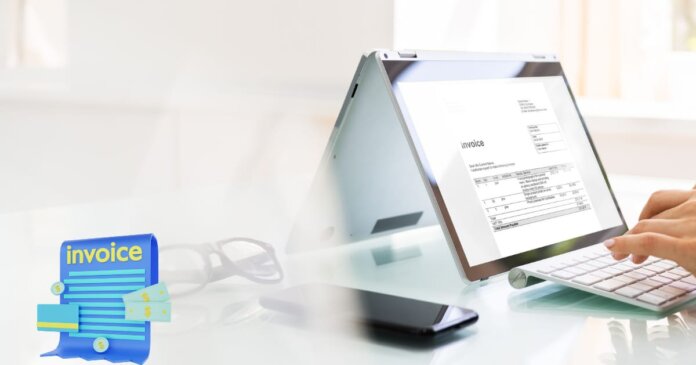e invoice under gst – As per Rule 48(4) of the CGST Rules, notified class of registered persons have to prepare invoice by uploading specified particulars of invoice (in FORM GST INV-01) on Invoice Registration Portal (IRP) and obtain an Invoice Reference Number (IRN).
After following above ‘e-invoicing’ process, the invoice copy containing inter alia, the IRN (with QR Code) issued by the notified supplier to buyer is commonly referred to as ‘e-Invoice’ in GST.
e-Invoice has many advantages for businesses such as auto reporting of invoices into GST return, auto-generation of e-way bill (where required).
e-Invoice facilitates standardisation and inter-operability leading to reduction of disputes among transacting parties, improving payment cycles, reduction of processing costs and thereby greatly improving overall business efficiency.
Table of Contents
Process of generation of e-Invoice under gst –
Registered persons will continue to create their GST invoices on their own Accounting / Billing/ ERP Systems.
These invoices will be reported to ‘Invoice Registration Portal (IRP)’. On reporting, IRP returns the e-invoice with a unique ‘Invoice Reference Number (IRN)’ after digitally signing the e-invoice and adding a QR Code.
Then, the invoice can be issued to the receiver (along with QR Code).
read also :
what is tcs under gst in hindi
Applicability of e-Invoice under gst –
For registered persons whose Aggregate Annual Turnover (based on PAN) in any preceding financial year from 2017- 18 onwards, is more than prescribed limit (as per relevant notification), e-Invoicing is mandatory.
Further, as per Rule 48(5) of the CGST Rules, any invoice issued by a notified person in any manner other than the manner specified in Rule 48(4) of the CGST Rules, the same shall not be treated as an invoice.
Electronic invoicing system was introduced for taxpayers with Aggregate Annual Turnover of more than ` 500 Cr from 01st October, 2022 for B2B transactions and for export invoices
vide Notification No. 13/2020-Central Tax dated 21.03.2020.
The same was extended for taxpayers with Aggregate Annual Turnover of more than ` 100 Cr from 01st January, 2021 vide Notification No. 88/2020-Central Tax dated 10.11.2020. Further, vide Notification No. 05/2021-Central Tax dated 08.03.2021, the same has been extended for taxpayers with Aggregate Annual Turnover of more than ` 50 Cr from 01st April, 2021.
The same has been extended for taxpayers with Aggregate Annual Turnover of more than ` 20 Cr from 01st April, 2022 vide Notification No. 01/2022-Central Tax dated 24.02.2022 and for taxpayers with Aggregate Annual Turnover of more than 10 Cr from 01st October, 2022 vide Notification No. 17/2022-Central Tax dated 01.08.2022.
Documents covered under e-Invoice –
(a) Invoices
(b) Credit Notes
(c) Debit Notes
when issued by notified class of taxpayers (to registered persons (B2B) or for the purpose of Exports).
Supplies presently covered under e-Invoice under gst
Supplies to registered persons (B2B), supplies to SEZs (with/ without payment), exports (with/without payment), deemed exports, by notified class of taxpayers are currently covered under e-invoicing.
Entities/sectors for which e-Invoicing is not applicable / exempt-
(a) Special Economic Zone Units
(b) Insurers
(c) Banking companies or financial institutions, including
a Non-Banking Financial Company (NBFC)
(d) Goods Transport Agency (GTA) supplying services in
relation to transportation of goods by road in a goods
carriage
(e) Suppliers of passenger transportation service
(f) Suppliers of services by way of admission to exhibition
of cinematograph films in multiplex screens
(g) Persons registered in terms of rule 14 of CGST Rules
(OIDAR)
(h) Government department
(i) Local authority
Further, the exemption from e-invoicing is with respect to the entity and not with respect to the nature of supply/transaction.
Is e-Invoicing applicable for NIL-rated or wholly-exempt supplies?
No, e-Invoice is not required for NIL-rated or wholly-exempt supplies. In those cases, a bill of supply is issued and not a tax invoice.
- कैपिटल गुड्स की इनपुट टैक्स क्रेडिट कैसे ली जा सकती है | itc on capital goods under gst
- जीएसटी में कौनसा बिल कब जारी किया जाता है | gst invoice
Applicability of e-Invoicing for supplies involving Reverse Charge-
If the invoice issued by notified person is in respect of supplies made by him but attracting reverse charge under Section 9(3) of the CGST Act, e-invoicing is applicable.
For example, a taxpayer (say, a Firm of Advocates having Aggregate Annual Turnover in a FY is more than ` 500 Cr) is supplying services to a company (who will be discharging tax liability as recipient under RCM), such invoices have to be reported by the notified person to IRP.
e invoice under gst pdf – download
